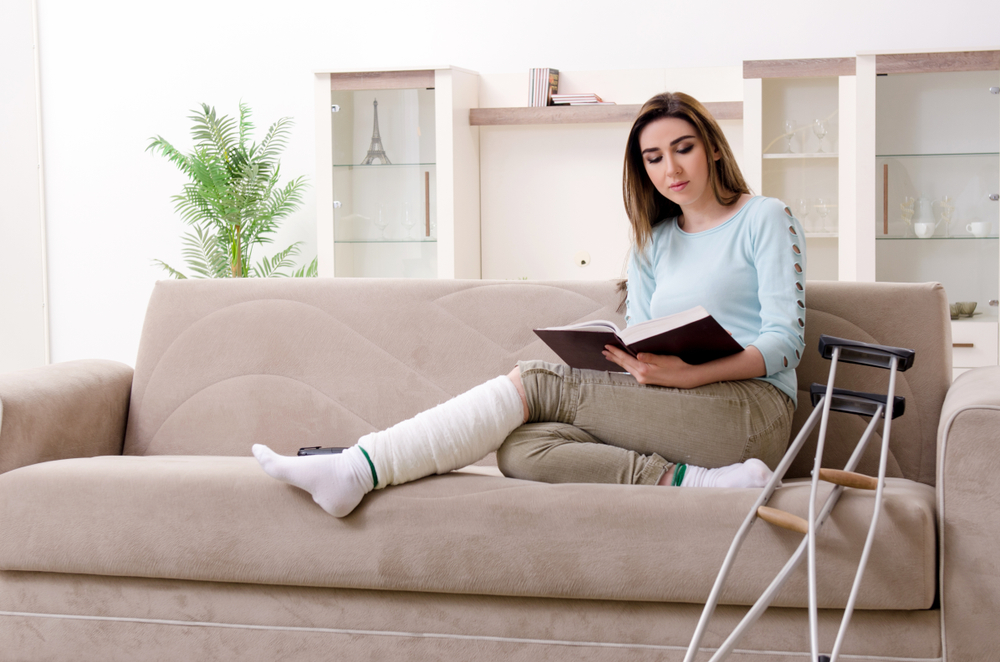
Being involved in a car accident can be a frightening and destructive experience. Depending on the severity of the collision, you might be able to walk away with bumps and bruises, or you might have to be hospitalized. Either way, the impact can set you up for a difficult road to recovery.
How do you navigate that road? How can you recover from a car accident more fully and more quickly?
Physical, Mental, and Financial Recovery
First, understand that recovery is multifaceted. To recover fully from a car accident, you’ll need to consider your physical, mental, and financial challenges. How can you make sure your body is fully healed? How do you mentally cope with the accident? How can you make sure you get the compensation you deserve?
Tips for Recovering From a Car Accident
These strategies can help you recover from a car accident faster and more comprehensively:
1. Get a good lawyer. After the accident, find yourself a good personal injury lawyer. Your lawyer will be able to help you understand the dynamics of your case, the state of your injuries, and the best path to maximize your potential compensation. They can negotiate with insurance companies on your behalf and push for greater damages, ultimately taking care of all your financial concerns. It’s usually free to have an initial consultation with a personal injury lawyer, so there’s no harm in exploring this option.
2. Follow all medical guidance. No matter what, following the advice of your medical professionals should be your highest priority. If they tell you to rest, you should rest. If they want to see you for a follow-up appointment, attend that appointment. If you’re given a prescription, take that medication. This is important for both facilitating a smoother physical recovery and maximizing your potential compensation.
3. Take time off (if you can). Extreme car crashes may render you physically unable to work. If that’s the case, you can ignore this point. Otherwise, you may have the option of returning to work or not; if you’re in this position, consider taking some dedicated time off to heal. Even if you feel physically and mentally capable of working, having a few extra days or weeks to relax and let your body recover could be incredibly valuable.
4. Eat well and stay hydrated. If you want your body to heal efficiently, and if you want to stay in a good mental state, it’s important to eat nutritious foods. Make it a point to have several balanced meals a day, complete with plenty of fruits and vegetables. Good hydration is also crucial for effective healing, and it provides you with tons of ancillary benefits, such as improving cognition, boosting the quality of your sleep, and even regulating your mood.
5. Use painkillers with caution. Most doctors have significantly reduced prescriptions of opioid painkillers, but you may still receive prescription painkillers of some form. Otherwise, you have the option of using various types of over-the-counter (OTC) painkillers. Either way, tread with caution and use these painkillers prudently; always follow the directions on the bottle and the advice of your doctor, and avoid over-relying on these medications.
6. Get moving (in alignment with medical advice). Assuming your physician is okay with you moving around, get your body in motion. Every day, you should spend time physically exercising and stretching, to the extent you can. Even simple exercises, like walking around the block, can stimulate blood flow, keep your muscles limber, boost your mood, and facilitate faster recovery. As you gradually feel stronger and experience less soreness, you can increase the intensity of this exercise.
7. Ask others for help. Don’t be afraid to ask for help from other people in your life, such as family members, friends, and neighbors. Other people can help you with basic responsibilities like getting groceries, cooking food, and getting the mail. They’re also invaluable for helping you process your emotions and cope with the trauma of the car accident. If nothing else, socializing is a fantastic distraction.
8. Consider attending therapy. Some people involved in car accidents develop symptoms of post-traumatic stress disorder (PTSD). Others exhibit at least some signs of recurring anxiety. If you have any mental health symptoms that you’re having trouble managing, or if you just want a neutral third party to help you process some things, consider attending therapy. Your therapist can help you discover more symptom management strategies and gradually help you feel better returning to normal life.
Recovering from a car accident isn’t always a straightforward path, and it isn’t always a pleasant one. But if you follow these strategies, you could set yourself up for a smoother, more predictable journey.
Leave a Reply